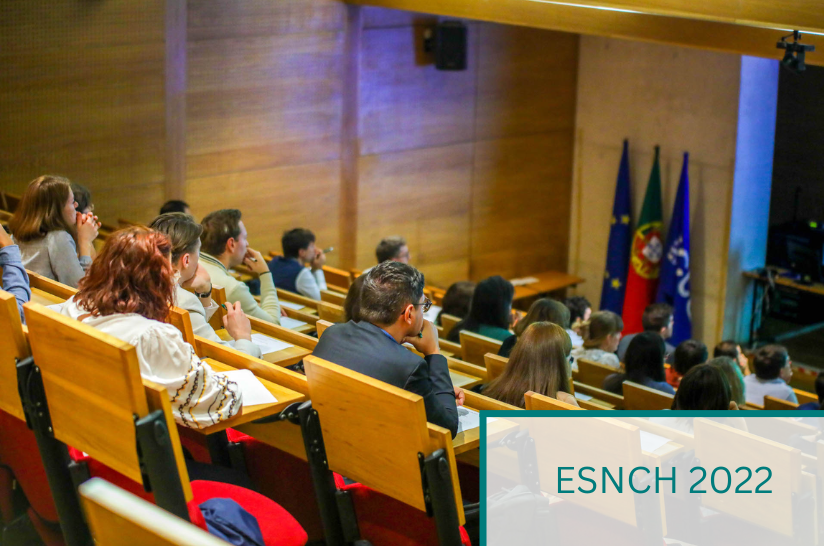
27 Nov. 2022 ESNCH 2022
News from European Society of Neurosonology and Cerebral Hemodynamics (ESNCH)
The 2022 conference of the European Society of Neurosonology and Cerebral Hemodynamics (ESNCH) was held in Lisbon, Portugal from 14 – 16 October 2022.
The scientific program presented results of new studies confirming ultrasound as a powerful tool in the hands of users. There are good news and activities from the society, which surely will set landmarks in the global landscape of Neurosonology.
Council of Nations
A newly formed panel “Council of Nations”. Purpose is to gather proposals for ESNCH ambassadors in countries worldwide.
NeuroPOCUS
The NeuroPOCUS (point of care ultrasound) working group is a new joint project by the European Academy of Neurology Scientific Panel Neurosonology, the European Society of Neurosonology and Cerebral Hemodynamics, and the European Reference Centers in Neurosonology (EAN SPN/ESNCH/ERNSono) and was given the task of describing the concept of NeuroPOCUS.
The concept is based on the particular demand for ultrasound examinations, exceeding the combined number of computed tomography, X-ray, and magnetic resonance imaging procedures. In addition, due to the high diagnostic accuracy, widespread availability, low price, non-invasiveness, and mobility of ultrasound devices, the use of sonographic examination is often the first choice for these patients. Thus, a new ultrasound examination concept as a method that provides quick answers to specific clinical questions emerged, instead of a complete standard examination.
The description of the concept has just been published in a paper: Valaikiene J, Schlachetzki F, Azevedo E, Kaps M, Lochner P, Katsanos AH, Walter U, Baracchini C, Bartels E, Školoudík D. Point-of-Care Ultrasound in Neurology. Report of the EAN SPN / ESNCH / ERcNsono Neuro-POCUS Working Group. Eur J Ultrasound 2022 May 5. doi: 10.1055/a-1816-8548.
Working Groups
All working groups are continuing their intense activity. Important developments and projects have been presented in the ESNCH 2022 Conference.
Since 2018, ESNCH working groups gather experts in different areas of Neurosonology with the aim of producing reviews, meta-analyses, guidelines, conducting collaborative research projects.
Especially young neurologists have an unique opportunity to network and gain new knowledge.
There are several TCD related work groups for e.g:
- Ultrasound in primary and secondary stroke prevention
- Ultrasound in acute stroke
- Emboli Detection
- Ultrasound in the NICU and ER
- Technological development of ultrasound methods
- Functional TCD
- Education and guidelines
David Russell Young Neurosonologist Research Award
All working groups are continuing their intense activity. Important developments and projects have been presented in the ESNCH 2022 Conference.
Young researchers are the future of the society and strongly encouraged (interested neurosonologists younger than 35 years of age) to submit their proposals to the Proposals Evaluation Committee (PEC). Renaming this award, honours Prof. Russell’s continuous effort to promote research and enthusiasm among young Neurosonologists.
ESNCH meeting and activities at related conferences in 2023
ESNCH is connected to the Pan-European scientific community and collaborate with EAN (European Academy of Neurology), ESO (European Stroke Organization) and EFSUMB (European Federation of Societies for Ultrasound in Medicine and Biology).
Collaborations for scientific activities of the ESNCH at related conferences in 2023 are:
- ESNCH Workshop on Sickle Cell Disease, April 2023, Italy
- ESNCH-ESO Hands-on Course during ESOC 2023, 24-25 May 2023 in Munich, Germany
- ESNCH International Teaching Course together with the Zadar Summer School of Neurosonology, 21-23 June 2023 in Zadar, Croatia
- ESNCH-EAN Hands-on Course during EAN conference, 1-4 July 2023 in Budapest, Hungary
- ESNCH International Workshop in cooperation with Dr. Pradeep (Kerala, India) on Sickle Cell Disease, India
Increase of Sickle Cell Disease patients in Europe
Due to the increasing amounts of immigrants the amount of patients (children’s as well as adults) is increasing especially in Europe.
